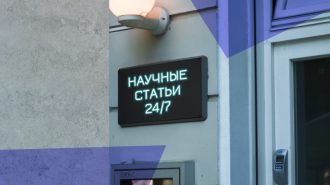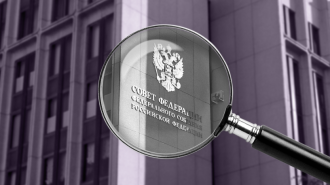Viktor Sadovnichy, the 85-year-old rector of Moscow State University, has been reappointed for a seventh term. This is not quite a typical situation: today the average age of a rector is under 60. T-invariant has studied the biographies of the heads of Russian universities in detail and realised that the problem with the rector corps is different: it is remarkably monotonous, as if they have specially selected people according to the average statistical pattern. Both the rector of Moscow State University and the heads of unremarkable regional universities have similar biographies and typical careers.
corruption
Recently, American scientist Sam Payne received a review of his own article published three years earlier, but now its authors were five employees of Sechenov University. So the world scientific community learnt about the Russian company "International Publisher", which is engaged in the production of fake scientific articles and places them for money in major foreign journals. More details - in the material T-invariant.
In early September, it became known that Dmitry Repin, who previously held the position of Advisor to the Rector of the Russian Academy of National Economy and Public Administration, was appointed Acting Deputy Director of IPPI RAS. The appointment took place against the background of the ongoing public conflict between the scientific staff of the institute and the recently appointed acting director of IPPI Maxim Fedorov. T-invariant tells what is known about the new administrator of the institute.
Students of the "School of District Anti-Corruption" together with Groza and T-Invariant studied the composition of expert councils at the Ministry of Education and Science of the Russian Federation. It turned out that more than 10 per cent of the experts who influence decision-making "on the most important issues of the ministry's activities" are plagiarists and violators of academic ethics.
Over the two and a half years that the war in Ukraine has been going on, more than two thousand scientific articles dedicated to the "special military operation" have been published in Russia. Among them are some that have almost no relation to science, as well as quite professional studies by Russian scientists in the fields of law, psychology, sociology, and military affairs. T-invariant has read these articles and tells us what they are about.
University Transparency Laboratory (Lupa), with the help of the free online community Dissernet, analyzed the activities of expert councils of the upper house of the Russian parliament. It turned out that 10% of experts advising senators on the laws they pass have violations of academic ethics.
The Special Economic Zone (SEZ) "Alabuga", which has already hit the pages of all the world's media this year with a series of high-profile scandals, this time swung at the solar system and acted as a collective Ostap Bender for all the money - namely 491 trillion rubles . Leading Russian astrophysicists responded by recalling the gravitsappa on the Yubileiny satellite (a loud anti-scientific failure of Roscosmos from 2008).








